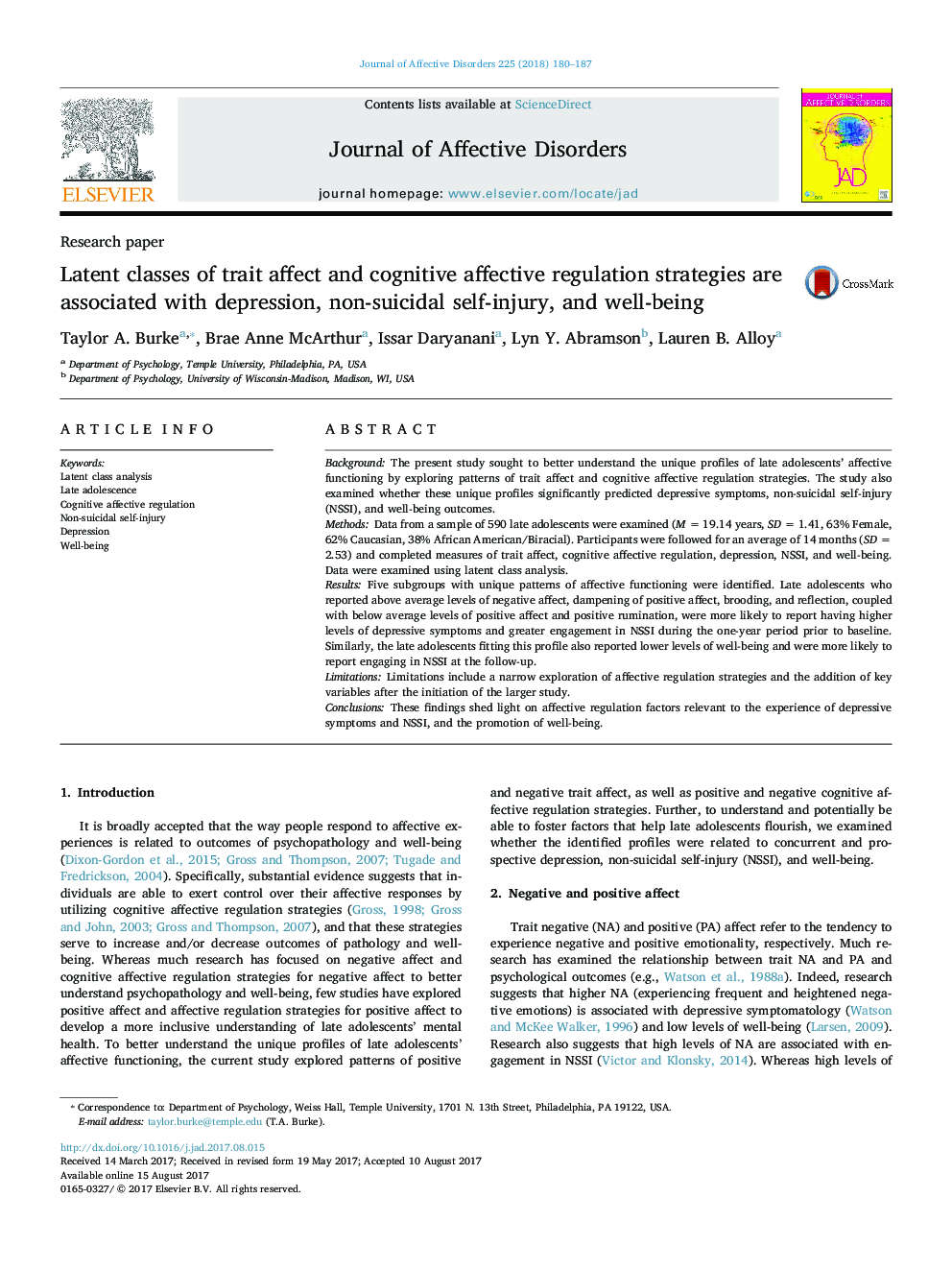| کد مقاله | کد نشریه | سال انتشار | مقاله انگلیسی | نسخه تمام متن |
|---|---|---|---|---|
| 5721705 | 1608100 | 2018 | 8 صفحه PDF | دانلود رایگان |
- Latent Class Analysis used to identify adolescent affective functioning profiles.
- Five classes based on affect and cognitive affective regulation were identified.
- Classes were associated with concurrent depression and NSSI.
- Classes were associated with prospective NSSI and well-being.
BackgroundThe present study sought to better understand the unique profiles of late adolescents' affective functioning by exploring patterns of trait affect and cognitive affective regulation strategies. The study also examined whether these unique profiles significantly predicted depressive symptoms, non-suicidal self-injury (NSSI), and well-being outcomes.MethodsData from a sample of 590 late adolescents were examined (M = 19.14 years, SD = 1.41, 63% Female, 62% Caucasian, 38% African American/Biracial). Participants were followed for an average of 14 months (SD = 2.53) and completed measures of trait affect, cognitive affective regulation, depression, NSSI, and well-being. Data were examined using latent class analysis.ResultsFive subgroups with unique patterns of affective functioning were identified. Late adolescents who reported above average levels of negative affect, dampening of positive affect, brooding, and reflection, coupled with below average levels of positive affect and positive rumination, were more likely to report having higher levels of depressive symptoms and greater engagement in NSSI during the one-year period prior to baseline. Similarly, the late adolescents fitting this profile also reported lower levels of well-being and were more likely to report engaging in NSSI at the follow-up.LimitationsLimitations include a narrow exploration of affective regulation strategies and the addition of key variables after the initiation of the larger study.ConclusionsThese findings shed light on affective regulation factors relevant to the experience of depressive symptoms and NSSI, and the promotion of well-being.
Journal: Journal of Affective Disorders - Volume 225, 1 January 2018, Pages 180-187
